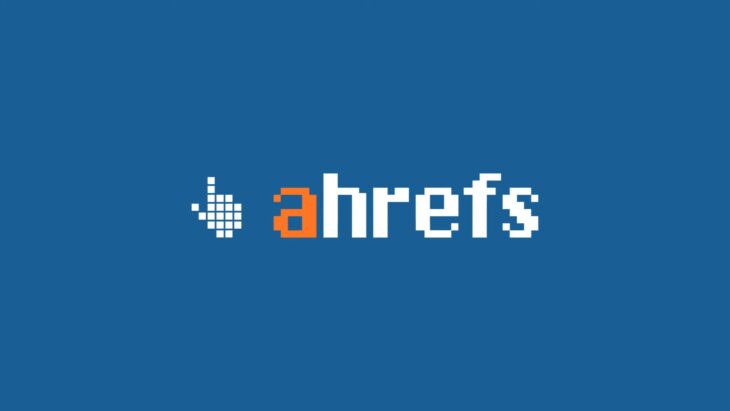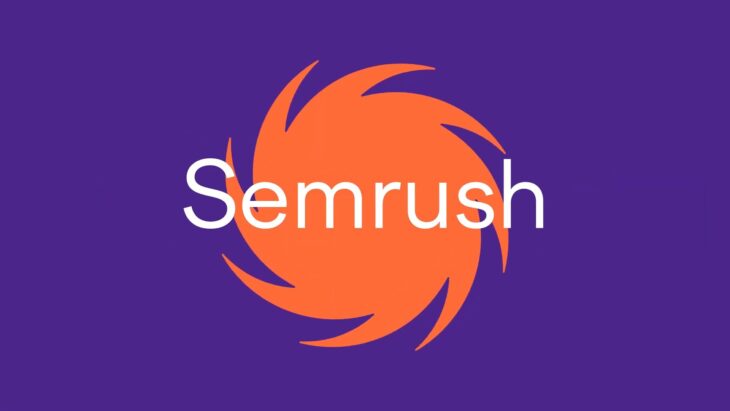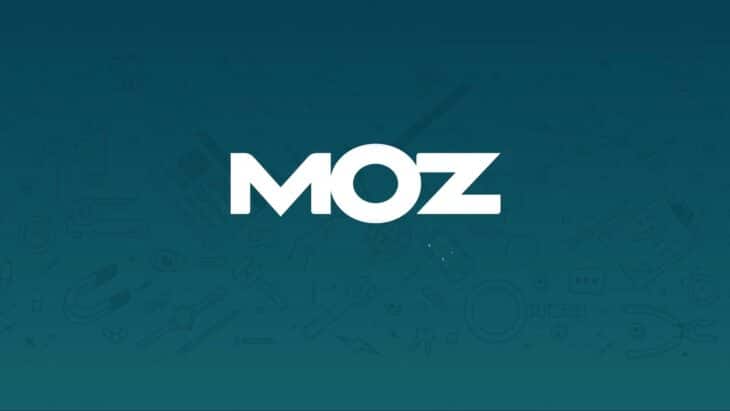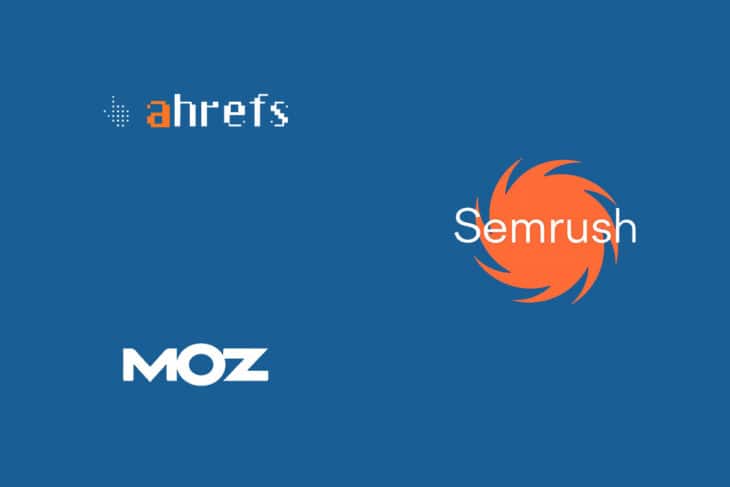Choosing the right SEO tool is essential if you have a website or working with anything related to digital marketing. The main purpose of these tools is to track all sorts of instances, such as traffic, keywords, backlinks, and trends that can help you adjust or select a new strategy for your business.
The leaders in this field are Ahrefs, Moz, and Semrush. The question is – Which one of these is the best?
I will compare them provide more details about each tool, and help you make the right choice.
Table of Contents
ToggleKey Takeaways
- Moz is highly user-friendly and great for on-page optimization, making it a top choice for those new to SEO.
- Ahrefs offers robust backlink analysis and real-time data updates, ideal for detailed SEO analysis.
- Semrush excels in competitor research and social media integration, beneficial for complex online marketing campaigns.
Ahrefs – No.1 SEO Tool

Ahrefs boasts the largest database of US search queries, maintaining historical records for over 35 trillion external backlinks. This massive data repository ensures that I have access to extensive information for crafting effective SEO strategies.
Additionally, third-party studies have validated the high quality of Ahrefs’ data, giving me confidence in its accuracy.
Real-Time Data and Updates
The platform updates its metrics daily, which is crucial in the fast-paced digital landscape. This feature allows me to respond quickly to changes in SEO rankings and search landscapes.
Ahrefs’ backlink index, updated every 15 minutes, is particularly impressive, offering me the latest insights into my website’s backlink profile.
Pricing and Accessibility
Ahrefs offers various pricing plans, starting at $99/month for small businesses and scaling up to enterprise-level plans. The tiered pricing structure makes it accessible for different business sizes and needs, allowing me to choose a plan that best fits my budget and requirements.
Key Features of Ahrefs
- Keywords Explorer: Offers in-depth keyword research capabilities, revealing valuable metrics like search volume and keyword difficulty.
- Site Explorer: Allows for comprehensive analysis of a website’s backlink profile and organic search traffic.
- Content Explorer: Helps in discovering popular content within a specific topic or niche.
- Dashboard: Provides an overview of key metrics and site performance at a glance.
- SERP Comparison: Enables comparison of search engine results pages for different keywords.
- Web Explorer: A unique feature for finding relevant pages indexed by Ahrefs’ search engine.
Pros and Cons
| Pros | Cons |
|---|---|
| Largest database of US search queries | Pricing can be high for small businesses |
| High-quality, real-time data updates | Some features require more experience |
| A comprehensive set of SEO tools | Limited integration with other platforms |
| Effective for a competitor and backlink analysis | Can be overwhelming for beginners |
| Regular feature updates and enhancements |
Semrush

While Ahrefs is my primary tool, Semrush offers a compelling alternative with its unique features and capabilities. Renowned for its comprehensive SEO toolkit, Semrush caters to a variety of digital marketing needs.
Wide Range of Features
Semrush excels in offering a diverse range of tools, from keyword research to social media integration. It’s particularly strong in competitor analysis, enabling me to gain valuable insights into competitors’ strategies.
This aspect is invaluable for staying ahead in the highly competitive digital marketing landscape. It can be a great solution for starting a YouTube channel, but you will have to learn more about how to gain more subscribers as well.
User-Friendly Interface
One of Semrush’s standout qualities is its user-friendly interface, making it accessible even to those who are new to SEO. This ease of use does not compromise its depth. The platform offers detailed data and analysis for advanced users.
With a combination of the right strategies, you will surely be able to reach a much higher traffic by using this tool.
Local SEO and Social Media Tools
What sets Semrush apart is its focus on local SEO monitoring and social media tools. These features are particularly useful for businesses targeting local markets or leveraging social media for brand visibility.
Another strategy that a business can use for even faster and better results is to combine SEO with SEM.
Pricing
Semrush offers a variety of pricing plans, starting from $99 per month.
Key Features of Semrush
- Keyword Research: Offers comprehensive tools for discovering and analyzing keywords.
- Competition Research: Provides detailed insights into competitors’ SEO and marketing strategies.
- Local SEO Monitoring: Specialized tools for optimizing local SEO efforts.
- Social Media Integration: Facilitates the integration and analysis of social media campaigns.
- Site Audit: Helps identify and fix SEO issues on a website.
- SEO Ranking Tracking: Tracks the ranking of keywords and provides regular updates.
Pros and Cons
| Pros | Cons |
|---|---|
| Comprehensive SEO toolkit | Can be overwhelming for beginners |
| User-friendly interface | Some features limited in lower-tier plans |
| Strong in competitor and market analysis | Additional cost for more users or features |
| Effective local SEO and social media tools | Keyword metrics are not as extensive as Ahrefs |
| Flexible pricing plans |
Moz

Moz is a well-known name in the SEO world, celebrated for its user-centric approach and effective tools. While Ahrefs and Semrush are my primary tools, Moz stands out for its simplicity and effectiveness, especially for those new to SEO or with limited technical expertise.
Simplified SEO for All
Moz’s biggest draw is its user-friendly interface. This makes it an excellent choice for beginners or businesses with limited SEO experience.
It makes the whole SEO process much easier, turning complex data into understandable insights. It can be a perfect solution for less complex websites. For example, for real estate agents.
Wide Selection of SEO Features
Moz offers a range of tools that cater to various aspects of SEO. From site audits to keyword research, Moz provides essential functionalities required for effective SEO strategy development and implementation.
Focus on On-Page Optimization
Moz is particularly strong in on-page optimization. Its tools help in refining website content and structure for better search engine visibility.
The focus is crucial for businesses aiming to enhance their organic search presence.
Pricing Options
Moz’s pricing starts at $99 per month, similar to Ahrefs and Semrush, making it accessible to small businesses.
Key Features of Moz
- Keyword Research: Provides tools for discovering and analyzing effective keywords.
- Site Audit: Helps identify SEO issues and provides actionable recommendations.
- On-Page Optimization: Offers suggestions for optimizing web pages for better ranking.
- Backlink Research: Analyzes backlink profiles and helps in developing backlink strategies.
- Report Generation: Enables the creation of comprehensive SEO reports for tracking and analysis.
- Local SEO Tools: Specialized tools for optimizing local search presence.
Pros and Cons
| Pros | Cons |
|---|---|
| User-friendly interface suitable for beginners | Features may be less extensive than Ahrefs or Semrush |
| Effective for on-page SEO optimization | Some tools may lack depth for advanced users |
| Comprehensive site audit and keyword research tools | Backlink data not as robust as competitors |
| Good for local SEO strategies | Limited social media integration |
| Flexible pricing plans |
How to Make the Right Choice?
The decision depends on various factors and needs. Each of these tools has great abilities, and some details and features can be more or less important for your business.
Here are the key features to focus on when making a choice.
- Expertise Level: Moz is ideal for beginners or those who prefer a user-friendly interface. Ahrefs and Semrush, while also user-friendly, offer more advanced features suited for experienced SEO professionals.
- Feature Requirements: If your focus is comprehensive backlink analysis and real-time data, Ahrefs is the top choice. Semrush excels in competitor analysis and social media integration, whereas Moz is known for its on-page optimization and local SEO tools.
- Budget Constraints: All three tools offer plans starting at $99 per month, but their higher-tier plans differ in pricing and features offered. It’s important to align your budget with the features you need the most.
- Integration Needs: Consider the compatibility of these tools with other software and platforms you use. Semrush and Ahrefs offer more in terms of integrations compared to Moz.
Comparison
| Feature | Semrush | Ahrefs | Moz |
|---|---|---|---|
| User-Friendliness | High | Medium | Very High |
| Backlink Analysis | Strong | Very Strong | Medium |
| Keyword Research | Extensive | Extensive | Comprehensive |
| Competitor Analysis | Very Strong | Strong | Medium |
| Local SEO | Strong | Medium | Strong |
| Pricing | Flexible | Flexible | Flexible |
| Integration | Strong | Medium | Medium |
FAQs
Can I use Ahref for free?
Ahref does not offer a free trial, but you can use some of its tools for free with limited functionality. You can also sign up for Ahrefs Webmaster Tools, which gives you free access to Site Explorer and Site Audit for your websites.
Is 75 a good SEO score?
An SEO score is a metric that shows how well your website is optimized for search engines. Different tools may have different ways of calculating the score, but generally, a higher score means better SEO. A score of 75 is considered good, but there is always room for improvement.
Is Semrush good for keywords?
Semrush is a popular tool for keyword research, as it has a large database of keywords and provides various metrics and features to help you find the best keywords for your SEO. You can use Semrush to generate keyword ideas, analyze keyword difficulty and intent, check search volume and trends, and more.
What is the best SEO structure?
The best SEO structure is one that is logical, hierarchical, and easy to navigate for both users and search engines. It should group your content into relevant categories and subcategories, use descriptive and optimized URLs, create a shallow-depth navigation structure, and use internal links and breadcrumbs to connect your pages.
Last Words
The real question isn’t about which SEO tool is universally the best. It’s about which one fits your specific needs and journey in digital marketing.
If you’re just beginning and need something straightforward, Moz is an excellent starting point. For detailed analysis in areas like backlinks, Ahrefs stands out as a strong option.
For those focusing on competitive analysis and social media, Semrush offers targeted tools.




